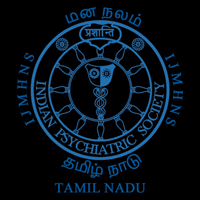Atropine induced delirium in young female with unknown snake bite : Case report
Abstract
Venomous snakebites account for many deaths in developing countries. Administration of an Acetylcholinesterase Inhibitor (ACEI) has been recommended by WHO as a part of neurotoxic snakebite treatment. With atropine being used to reduce the undesirable muscarinic effects of ACEIs, adverse effects like delirium can occur. Delirium is characterized by acute decline in level of consciousness and cognition involving perceptual disturbances, abnormal psychomotor activity, and sleep cycle impairment. This case report describes a 17-year-old female with unknown snakebite who developed atropine induced delirium despite being under the cover of ACEIs and at a lower dose (4.5 mg) than usual for the drug to cause delirium. Though there are reports in literature about atropine induced delirium in organophosphate poisoning, to our knowledge none were reported snakebite cases. Hence, clinicians need to be cautious while encountering with such patients and should always consider the possibility of atropine induced delirium even in snakebite cases.

